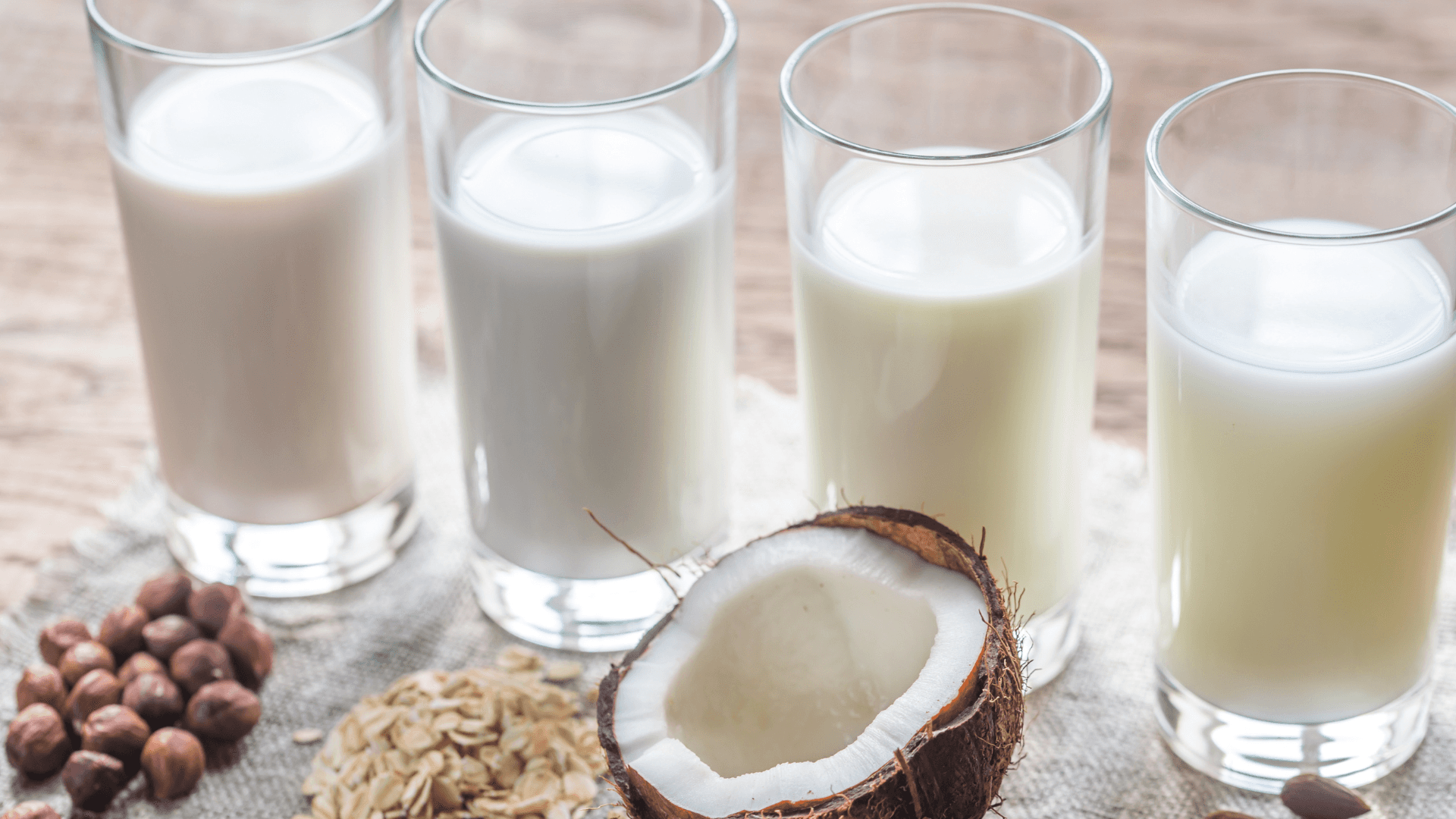Green tea: a natural source of health and vitality
Green tea: a natural source of health and vitality
Green tea: a natural source of health and vitality
Apr 5, 2024
Apr 5, 2024
Apr 5, 2024

Explore the numerous health benefits of green tea, from disease prevention to boosting metabolism and cognitive function. Discover how this ancient beverage can contribute to your well-being.
Explore the numerous health benefits of green tea, from disease prevention to boosting metabolism and cognitive function. Discover how this ancient beverage can contribute to your well-being.
Explore the numerous health benefits of green tea, from disease prevention to boosting metabolism and cognitive function. Discover how this ancient beverage can contribute to your well-being.
Green tea, known for its health benefits, is a worldwide-consumed beverage. Originating in Asia, where it is a staple of traditional medicine, green tea boasts a rich composition of nutrients and antioxidants that offer numerous scientifically proven benefits.
Chemical composition of green tea and its antioxidants
Green tea is abundantly rich in catechins, a polyphenol known for its remarkable antioxidant properties that protect cells against oxidative damage and reduce the risk of various chronic diseases. Among these catechins is epigallocatechin gallate (EGCG), known to help prevent cardiovascular, metabolic, and neurodegenerative diseases.
Green tea also contains various essential minerals, such as manganese, zinc, chromium, and selenium, which are indispensable for different biological functions, including metabolism modulation and immune strengthening. The presence of L-theanine, an amino acid, further contributes to relaxation, stress reduction, and better concentration and mental focus.
Green tea and disease prevention
Reducing the risk of heart disease
The previously mentioned catechins can transform cardiovascular health, reducing plaque formation in the arteries, lowering levels of LDL cholesterol — known as "bad cholesterol" — and improving blood lipid profiles. These actions significantly contribute to reducing the risk of heart disease.
Studies suggest that consuming between one to three cups of green tea per day considerably reduces the risk of strokes and heart attacks, and individuals who consume at least 10 cups of green tea daily have even lower LDL cholesterol levels compared to those who drink less than three. Similarly, a recent analysis of seven studies indicated a correlation between regular green tea consumption and a lower risk of coronary artery disease.
Cancer prevention
EGCG has demonstrated abilities to inhibit the proliferation of cancer cells in various types of cancer, such as breast, colon, and brain. It interacts with several molecular pathways to halt the growth and multiplication of these cells, acting as an effective blocker in cancer progression.
Furthermore, green tea has been linked to inhibiting angiogenesis (the process by which new blood vessels form), vital for tumor growth, and promoting apoptosis (programmed cell death) in cancer cells while preserving healthy cells.
Control and prevention of type 2 diabetes
Green tea has shown beneficial impacts on glucose metabolism, contributing to the prevention and control of type 2 diabetes. Studies indicate that it can improve insulin sensitivity and lower blood sugar levels. EGCG, in particular, can act like insulin, helping regulate glucose levels and preventing spikes and subsequent insulin resistance, conditions associated with developing type 2 diabetes.
Green Tea for weight loss and metabolism
The caffeine and EGCG in green tea speed up metabolism and facilitate fat breakdown. Caffeine, a known stimulant, enhances physical performance, effectively promoting fat burning by activating hormones such as norepinephrine (responsible for making fat cells release fat into the bloodstream to be used as energy instead of being stored).
Moreover, research has demonstrated that green tea can reduce the body's absorption of fats, as the antioxidants in it interfere with digestion and absorption of lipids in the gastrointestinal tract.
Benefits of green tea for cognitive function
Scientific evidence suggests that green tea can improve the connectivity of neural networks in the brain, positively influencing neuroplasticity (the brain's ability to form new neuronal connections), which is essential for learning and memory. That is mainly due to epigallocatechin gallate (EGCG), whose antioxidant properties interact with brain proteins to prevent the formation of amyloid plaques and Tau fibers, factors associated with the development of dementia, including Alzheimer's.
Additionally, green tea can offer short-term cognitive benefits, such as improvements in attention, processing speed, and executive functions. The synergy between caffeine and L-theanine is particularly effective in enhancing focus and reducing anxiety, boosting mental productivity. Green tea has the potential to improve cognitive function, making it both nutritious and beneficial.
Green tea, skin health, and premature aging
Rich in antibacterial properties, green tea aids in unclogging pores and deep cleaning the skin, minimizing problems such as acne and leaving the skin smoother, cleaner, and more radiant. Its anti-inflammatory properties extend further, reducing irritation and redness, and providing significant relief for sensitive skin. Green tea also effectively works to alleviate dark circles and puffiness around the eyes thanks to caffeine, which reduces the inflammation of blood vessels.
The polyphenols in green tea act as a protective shield against ultraviolet rays, which are responsible for causing sunburns and skin cancer. While it does not replace sunscreen, it can complement a skincare routine, offering an extra layer of protection against the harmful effects of the sun.
In the fight against premature aging, green tea is a powerful ally as it promotes cell regeneration and maintains collagen levels, improving skin firmness, and smoothing out fine lines and wrinkles. Vitamin E's presence in its composition provides intense hydration and strengthens the skin's natural barrier.
Tips for preparing green tea
Consuming green tea can be a delightful and health-beneficial experience when prepared correctly. Here are some tips for brewing green tea to maximize both flavor and health benefits:
Quality Choice: Opt for high-quality green tea. Loose teas generally offer better flavor and more benefits than tea bags.
Water Temperature: Avoid boiling water, as very high temperatures can extract bitter compounds and destroy antioxidants. The ideal water temperature for green tea is between 158°F and 176°F (70°C and 80°C).
Steeping Time: To avoid excessive bitterness, do not steep green tea for too long; generally, 2 to 3 minutes are sufficient. If you prefer a stronger flavor, let it steep a little longer but be careful not to overdo it.
Do Not Reuse Leaves: Unlike some teas that can be re-steeped multiple times, green tea tends to lose its benefits and flavor after the first infusion.
Storage: Store green tea in a cool, dry place away from light and moisture to preserve its freshness and antioxidants. Airtight containers are ideal for maintaining quality.
Additions: If the pure flavor of green tea is too strong for you, consider adding a bit of honey, lemon, or mint to soften the taste.
__
Green tea is a beverage rich in antioxidants that offers various health benefits, including protection against chronic diseases, enhancing brain function, and aiding weight loss. It also protects skin health from sun damage and contributes to a longer, healthier life. Easily incorporated into the daily diet, green tea is a healthy alternative to sugary or caffeinated beverages, making it a valuable component of a balanced lifestyle.
Green tea, known for its health benefits, is a worldwide-consumed beverage. Originating in Asia, where it is a staple of traditional medicine, green tea boasts a rich composition of nutrients and antioxidants that offer numerous scientifically proven benefits.
Chemical composition of green tea and its antioxidants
Green tea is abundantly rich in catechins, a polyphenol known for its remarkable antioxidant properties that protect cells against oxidative damage and reduce the risk of various chronic diseases. Among these catechins is epigallocatechin gallate (EGCG), known to help prevent cardiovascular, metabolic, and neurodegenerative diseases.
Green tea also contains various essential minerals, such as manganese, zinc, chromium, and selenium, which are indispensable for different biological functions, including metabolism modulation and immune strengthening. The presence of L-theanine, an amino acid, further contributes to relaxation, stress reduction, and better concentration and mental focus.
Green tea and disease prevention
Reducing the risk of heart disease
The previously mentioned catechins can transform cardiovascular health, reducing plaque formation in the arteries, lowering levels of LDL cholesterol — known as "bad cholesterol" — and improving blood lipid profiles. These actions significantly contribute to reducing the risk of heart disease.
Studies suggest that consuming between one to three cups of green tea per day considerably reduces the risk of strokes and heart attacks, and individuals who consume at least 10 cups of green tea daily have even lower LDL cholesterol levels compared to those who drink less than three. Similarly, a recent analysis of seven studies indicated a correlation between regular green tea consumption and a lower risk of coronary artery disease.
Cancer prevention
EGCG has demonstrated abilities to inhibit the proliferation of cancer cells in various types of cancer, such as breast, colon, and brain. It interacts with several molecular pathways to halt the growth and multiplication of these cells, acting as an effective blocker in cancer progression.
Furthermore, green tea has been linked to inhibiting angiogenesis (the process by which new blood vessels form), vital for tumor growth, and promoting apoptosis (programmed cell death) in cancer cells while preserving healthy cells.
Control and prevention of type 2 diabetes
Green tea has shown beneficial impacts on glucose metabolism, contributing to the prevention and control of type 2 diabetes. Studies indicate that it can improve insulin sensitivity and lower blood sugar levels. EGCG, in particular, can act like insulin, helping regulate glucose levels and preventing spikes and subsequent insulin resistance, conditions associated with developing type 2 diabetes.
Green Tea for weight loss and metabolism
The caffeine and EGCG in green tea speed up metabolism and facilitate fat breakdown. Caffeine, a known stimulant, enhances physical performance, effectively promoting fat burning by activating hormones such as norepinephrine (responsible for making fat cells release fat into the bloodstream to be used as energy instead of being stored).
Moreover, research has demonstrated that green tea can reduce the body's absorption of fats, as the antioxidants in it interfere with digestion and absorption of lipids in the gastrointestinal tract.
Benefits of green tea for cognitive function
Scientific evidence suggests that green tea can improve the connectivity of neural networks in the brain, positively influencing neuroplasticity (the brain's ability to form new neuronal connections), which is essential for learning and memory. That is mainly due to epigallocatechin gallate (EGCG), whose antioxidant properties interact with brain proteins to prevent the formation of amyloid plaques and Tau fibers, factors associated with the development of dementia, including Alzheimer's.
Additionally, green tea can offer short-term cognitive benefits, such as improvements in attention, processing speed, and executive functions. The synergy between caffeine and L-theanine is particularly effective in enhancing focus and reducing anxiety, boosting mental productivity. Green tea has the potential to improve cognitive function, making it both nutritious and beneficial.
Green tea, skin health, and premature aging
Rich in antibacterial properties, green tea aids in unclogging pores and deep cleaning the skin, minimizing problems such as acne and leaving the skin smoother, cleaner, and more radiant. Its anti-inflammatory properties extend further, reducing irritation and redness, and providing significant relief for sensitive skin. Green tea also effectively works to alleviate dark circles and puffiness around the eyes thanks to caffeine, which reduces the inflammation of blood vessels.
The polyphenols in green tea act as a protective shield against ultraviolet rays, which are responsible for causing sunburns and skin cancer. While it does not replace sunscreen, it can complement a skincare routine, offering an extra layer of protection against the harmful effects of the sun.
In the fight against premature aging, green tea is a powerful ally as it promotes cell regeneration and maintains collagen levels, improving skin firmness, and smoothing out fine lines and wrinkles. Vitamin E's presence in its composition provides intense hydration and strengthens the skin's natural barrier.
Tips for preparing green tea
Consuming green tea can be a delightful and health-beneficial experience when prepared correctly. Here are some tips for brewing green tea to maximize both flavor and health benefits:
Quality Choice: Opt for high-quality green tea. Loose teas generally offer better flavor and more benefits than tea bags.
Water Temperature: Avoid boiling water, as very high temperatures can extract bitter compounds and destroy antioxidants. The ideal water temperature for green tea is between 158°F and 176°F (70°C and 80°C).
Steeping Time: To avoid excessive bitterness, do not steep green tea for too long; generally, 2 to 3 minutes are sufficient. If you prefer a stronger flavor, let it steep a little longer but be careful not to overdo it.
Do Not Reuse Leaves: Unlike some teas that can be re-steeped multiple times, green tea tends to lose its benefits and flavor after the first infusion.
Storage: Store green tea in a cool, dry place away from light and moisture to preserve its freshness and antioxidants. Airtight containers are ideal for maintaining quality.
Additions: If the pure flavor of green tea is too strong for you, consider adding a bit of honey, lemon, or mint to soften the taste.
__
Green tea is a beverage rich in antioxidants that offers various health benefits, including protection against chronic diseases, enhancing brain function, and aiding weight loss. It also protects skin health from sun damage and contributes to a longer, healthier life. Easily incorporated into the daily diet, green tea is a healthy alternative to sugary or caffeinated beverages, making it a valuable component of a balanced lifestyle.
Green tea, known for its health benefits, is a worldwide-consumed beverage. Originating in Asia, where it is a staple of traditional medicine, green tea boasts a rich composition of nutrients and antioxidants that offer numerous scientifically proven benefits.
Chemical composition of green tea and its antioxidants
Green tea is abundantly rich in catechins, a polyphenol known for its remarkable antioxidant properties that protect cells against oxidative damage and reduce the risk of various chronic diseases. Among these catechins is epigallocatechin gallate (EGCG), known to help prevent cardiovascular, metabolic, and neurodegenerative diseases.
Green tea also contains various essential minerals, such as manganese, zinc, chromium, and selenium, which are indispensable for different biological functions, including metabolism modulation and immune strengthening. The presence of L-theanine, an amino acid, further contributes to relaxation, stress reduction, and better concentration and mental focus.
Green tea and disease prevention
Reducing the risk of heart disease
The previously mentioned catechins can transform cardiovascular health, reducing plaque formation in the arteries, lowering levels of LDL cholesterol — known as "bad cholesterol" — and improving blood lipid profiles. These actions significantly contribute to reducing the risk of heart disease.
Studies suggest that consuming between one to three cups of green tea per day considerably reduces the risk of strokes and heart attacks, and individuals who consume at least 10 cups of green tea daily have even lower LDL cholesterol levels compared to those who drink less than three. Similarly, a recent analysis of seven studies indicated a correlation between regular green tea consumption and a lower risk of coronary artery disease.
Cancer prevention
EGCG has demonstrated abilities to inhibit the proliferation of cancer cells in various types of cancer, such as breast, colon, and brain. It interacts with several molecular pathways to halt the growth and multiplication of these cells, acting as an effective blocker in cancer progression.
Furthermore, green tea has been linked to inhibiting angiogenesis (the process by which new blood vessels form), vital for tumor growth, and promoting apoptosis (programmed cell death) in cancer cells while preserving healthy cells.
Control and prevention of type 2 diabetes
Green tea has shown beneficial impacts on glucose metabolism, contributing to the prevention and control of type 2 diabetes. Studies indicate that it can improve insulin sensitivity and lower blood sugar levels. EGCG, in particular, can act like insulin, helping regulate glucose levels and preventing spikes and subsequent insulin resistance, conditions associated with developing type 2 diabetes.
Green Tea for weight loss and metabolism
The caffeine and EGCG in green tea speed up metabolism and facilitate fat breakdown. Caffeine, a known stimulant, enhances physical performance, effectively promoting fat burning by activating hormones such as norepinephrine (responsible for making fat cells release fat into the bloodstream to be used as energy instead of being stored).
Moreover, research has demonstrated that green tea can reduce the body's absorption of fats, as the antioxidants in it interfere with digestion and absorption of lipids in the gastrointestinal tract.
Benefits of green tea for cognitive function
Scientific evidence suggests that green tea can improve the connectivity of neural networks in the brain, positively influencing neuroplasticity (the brain's ability to form new neuronal connections), which is essential for learning and memory. That is mainly due to epigallocatechin gallate (EGCG), whose antioxidant properties interact with brain proteins to prevent the formation of amyloid plaques and Tau fibers, factors associated with the development of dementia, including Alzheimer's.
Additionally, green tea can offer short-term cognitive benefits, such as improvements in attention, processing speed, and executive functions. The synergy between caffeine and L-theanine is particularly effective in enhancing focus and reducing anxiety, boosting mental productivity. Green tea has the potential to improve cognitive function, making it both nutritious and beneficial.
Green tea, skin health, and premature aging
Rich in antibacterial properties, green tea aids in unclogging pores and deep cleaning the skin, minimizing problems such as acne and leaving the skin smoother, cleaner, and more radiant. Its anti-inflammatory properties extend further, reducing irritation and redness, and providing significant relief for sensitive skin. Green tea also effectively works to alleviate dark circles and puffiness around the eyes thanks to caffeine, which reduces the inflammation of blood vessels.
The polyphenols in green tea act as a protective shield against ultraviolet rays, which are responsible for causing sunburns and skin cancer. While it does not replace sunscreen, it can complement a skincare routine, offering an extra layer of protection against the harmful effects of the sun.
In the fight against premature aging, green tea is a powerful ally as it promotes cell regeneration and maintains collagen levels, improving skin firmness, and smoothing out fine lines and wrinkles. Vitamin E's presence in its composition provides intense hydration and strengthens the skin's natural barrier.
Tips for preparing green tea
Consuming green tea can be a delightful and health-beneficial experience when prepared correctly. Here are some tips for brewing green tea to maximize both flavor and health benefits:
Quality Choice: Opt for high-quality green tea. Loose teas generally offer better flavor and more benefits than tea bags.
Water Temperature: Avoid boiling water, as very high temperatures can extract bitter compounds and destroy antioxidants. The ideal water temperature for green tea is between 158°F and 176°F (70°C and 80°C).
Steeping Time: To avoid excessive bitterness, do not steep green tea for too long; generally, 2 to 3 minutes are sufficient. If you prefer a stronger flavor, let it steep a little longer but be careful not to overdo it.
Do Not Reuse Leaves: Unlike some teas that can be re-steeped multiple times, green tea tends to lose its benefits and flavor after the first infusion.
Storage: Store green tea in a cool, dry place away from light and moisture to preserve its freshness and antioxidants. Airtight containers are ideal for maintaining quality.
Additions: If the pure flavor of green tea is too strong for you, consider adding a bit of honey, lemon, or mint to soften the taste.
__
Green tea is a beverage rich in antioxidants that offers various health benefits, including protection against chronic diseases, enhancing brain function, and aiding weight loss. It also protects skin health from sun damage and contributes to a longer, healthier life. Easily incorporated into the daily diet, green tea is a healthy alternative to sugary or caffeinated beverages, making it a valuable component of a balanced lifestyle.















